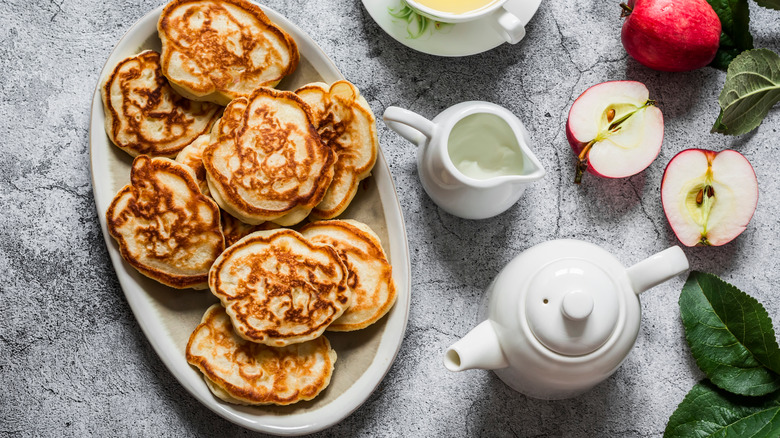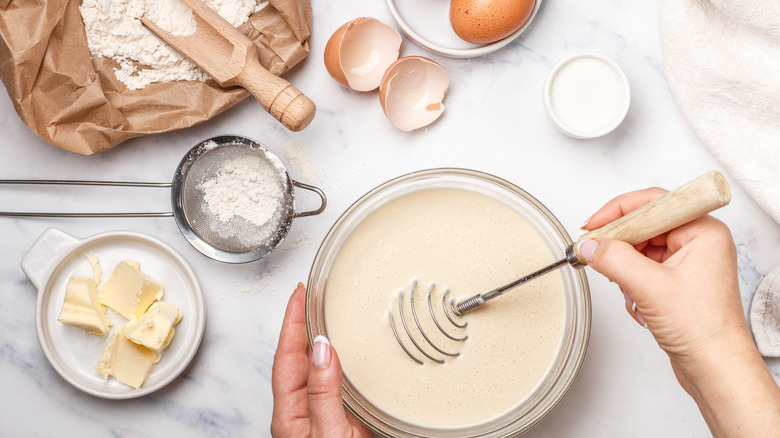Here's The Huge Sin You Are Committing When Making Pancakes
Pancakes are a perfect food, right? They're customizable with different toppings or add-ons inside, and they can be more savory or sweet depending on how you want to start your day. Heck, you can even have them for dinner if you want!
Pancakes are relatively easy to make, but that doesn't mean they're foolproof or that mistakes can't happen when making them. For example, basic pancake recipes, such as Allrecipes' Good Old Fashioned Pancakes, include just a few ingredients that make something fluffy, yummy, and warm. Essentially, you need flour, baking powder, eggs, sugar, milk, and salt, and from there you can flavor your pancakes however you want. The ingredients are simple and not necessarily the root of common pancake mistakes — that is, unless you start substituting ingredients, which can go awry very quickly.
One example of an easy mistake you can fix right away deals with understanding the ingredients you're using. In particular, you need to understand flour and its properties. When you mix flour, gluten forms, and if you create too much gluten, your pancakes will become tough (via The Kitchn). To effectively manage your gluten formation, you want to both refrain from over-mixing your batter and also let your batter rest for a few minutes before cooking it. These two things will stop too much gluten from forming while simultaneously allowing the established gluten to relax, which will create the soft, fluffy texture you want.
Follow these tips for perfect pancakes every time
In addition to not resting and over-mixing your batter, there are some other key mistakes you want to avoid when making pancakes. According to The Kitchn, these mistakes include starting with a cool pan and not being patient when cooking. If your pan isn't warm enough, your pancake will absorb the butter or oil instead of cooking in it. This leads to greasy pancakes that don't taste or feel as they should. On the other hand, if your heat is too high, the outside of your pancakes will cook before the inside can. You need to find the best in-between heat level.
Not being patient with pancakes is perhaps the biggest sin you can commit when making them. According to Bon Appétit, flipping too soon or too much can ruin the integrity of your pancake's structure. Instead of flipping when you see bubbles on the pancake, you should, "Flip when those bubbles pop and form holes that stay open on the surface of the pancake." Flipping only one time will keep your pancakes light and fluffy and can help ensure an even cook throughout the pancake. It'll also prevent you from experiencing the messy flip where loose batter oozes out and ruins the shape of your pancake.
Bon Appétit also recommends cooking with vegetable oil rather than butter (or clarified butter if you really want to use butter) because butter burns easily. They further note that your pan matters. Thin pans will burn your pancakes quicker, and pans that aren't wide enough won't give you enough room to flip well.
With these tips in mind, you should be set to embark on a pancake journey that is delicious and easy. Just remember: Don't overthink it, and be patient!

